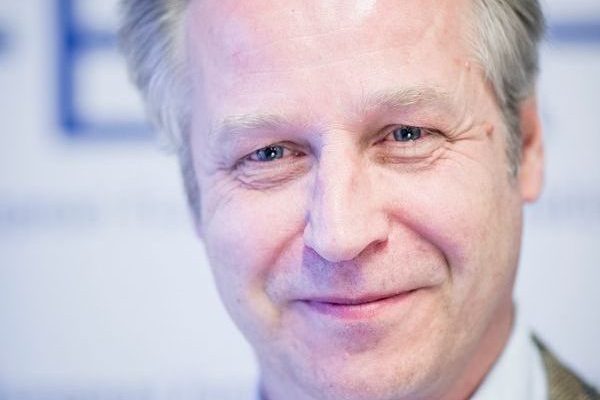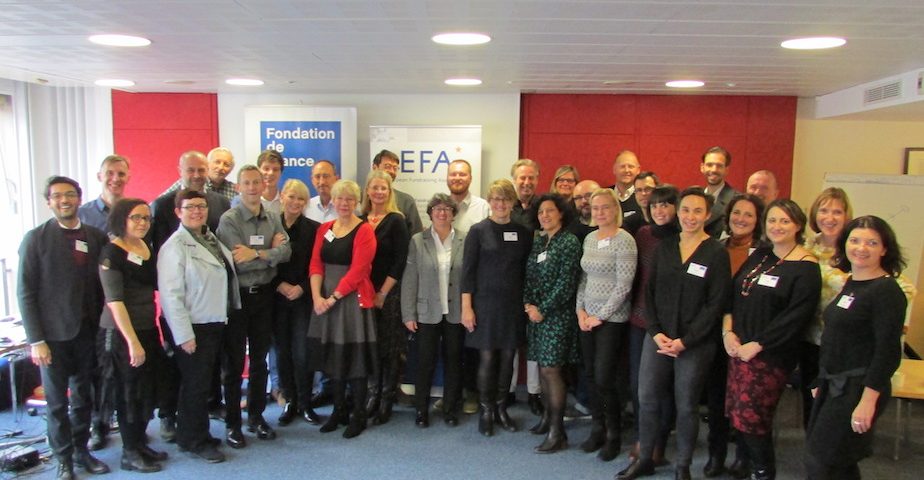
Summary of national tax incentives in Europe published today
December 5, 2018
EFA rallies behind sector campaign to limit the VAT burden for charities
December 5, 2018At this year’s EFA Skillshare in Paris on 22-23 November 2018, leaders from 15 national fundraising associations came together to discuss common challenges and opportunities for nonprofits in Europe.
With a focus on best practice in research, delegates heard about the latest fundraising trends in France and Italy, and gained an overview of research practices across Europe from the European Research Network on Philanthropy (ERNOP).
ERNOP’s Executive director, Barry Hoolwerf, underlined the challenge of producing comparative data about fundraising trends in Europe, highlighting that every nation carried out research differently, asking different questions. Often the definition or interpretation of philanthropy also varies, making it difficult to compare like with like and to draw meaningful conclusions.
However, in its recent study, which collates data from 20 nations, ERNOP estimates that philanthropy in Europe is worth at least 87.5 billion euros annually. This is seen to be a conservative estimate, due to the limited data currently available.
Exploring what consistutes an enabling environment for philanthropy, Hoolwerf said:
“People tend to donate more in a country in which there is a culture of philanthropy. One where there is trust, transparency, accountability and effectiveness.”
Supportive regulatory and legislative frameworks, with strong fiscal incentives were also identified to be key factors, along with a professionalised philanthropic sector, political and economic stability.
Common themes and contributions from delegates at the event suggest that individual giving is continuing to grow across Europe, but that the number of donors may be in decline. Charities are increasingly reliant on a smaller pool of wealthy donors and legacy income is becoming more and more important. Giving through crowdfunding, microdonation and other digital platforms is growing, but it still remains a minority in terms of funds raised.
An ageing donor pool in France
Speaking at Skillshare, Laurence de Nervaux, head of philanthropy research at the Fondation de France, commented that over 7.5 billion euros was currently donated each year in France, but that donors are getting older and there is a need for to engage with younger supporters:
“Older people are over-represented in the donor pool and there is little renewal. They are five times more likely to become a regular giver [than younger donors].”
She also highlighted the challenge that the current tax incentives to promote philanthropy are complicated. Recent proposals from the state suggest that those incentives may be capped in the future, making it an increasingly challenging environment.
“Could this be the end of the honeymoon period with public authorities?”, she asked.
Italian donors choose local causes
Meanwhile, senior researcher at DOXA, Valeria Reda, highlighted the findings from tracking survey Italiani Solidali 2017, indicating that Italy is seeing a steady decline in the number of individuals donating, and that those who give are increasingly supporting local causes. (See Tracking Study Shows Fewer Italians Giving But More Support For Local Causes.)
The donor experience
After in-depth discussions about donor data, Consultant Roger Lawson brought the focus back around to the donor experience, reminding delegates of the importance of emotion in fundraising and creating donor loyalty.
“If we are to build long-term donor loyalty, we need to engage donors emotionally with our causes and our work. Our job is not to educate or make people understand, but to make people care,” he said.
Lawson talked through a range of factors that create emotional loyalty in supporters, with the biggest three being commitment, trust and satisfaction. He went on to explain that different factors gain more importance at different stages of the relationship. Charities were encouraged to measure the loyalty of their donors and actively seek to improve it.
Skillshare concluded with a debate about how EFA and its members (national fundraising associations) can engage its network and support the development of research practices across Europe.




